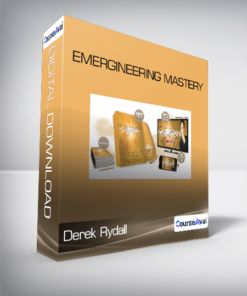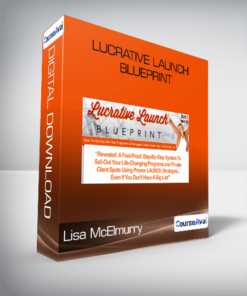-
×
 Managing Bedside Emergencies Online Course - Pam Collins & Cyndi Zarbano
1 × $85.00
Managing Bedside Emergencies Online Course - Pam Collins & Cyndi Zarbano
1 × $85.00 -
×
 MyBeliefworks for Positive Money Mindset - Jimmy Mack
1 × $37.00
MyBeliefworks for Positive Money Mindset - Jimmy Mack
1 × $37.00 -
×
 Reliable Income – Adam Hudson
1 × $172.00
Reliable Income – Adam Hudson
1 × $172.00 -
×
 4-15 Super Saturday - Chris Reiff
1 × $60.00
4-15 Super Saturday - Chris Reiff
1 × $60.00 -
×
 10 Steps to Learn Anything Quickly - John Sonmez
1 × $104.00
10 Steps to Learn Anything Quickly - John Sonmez
1 × $104.00 -
×
 Certificate Course in Optimal Aging: Evidence-Based Interventions for Older Adults - Carole Lewis
1 × $95.00
Certificate Course in Optimal Aging: Evidence-Based Interventions for Older Adults - Carole Lewis
1 × $95.00 -
×
 Advanced Killer Chicken Wings - Erik Paulson
1 × $34.90
Advanced Killer Chicken Wings - Erik Paulson
1 × $34.90
You may be interested in…
-
Add
 10 Activities to Enhance Social-Emotional Literacy in the Classroom: Transform Student Behavior from Chaos to Calm - Lynne Kenney
10 Activities to Enhance Social-Emotional Literacy in the Classroom: Transform Student Behavior from Chaos to Calm - Lynne Kenney
$29.99Original price was: $29.99.$19.00Current price is: $19.00. -
Add
 1-2-3 Magic: 3-Step Discipline for Calm, Effective and Happy Parenting - Thomas W. Phelan
1-2-3 Magic: 3-Step Discipline for Calm, Effective and Happy Parenting - Thomas W. Phelan
$199.99Original price was: $199.99.$84.00Current price is: $84.00. -
Add
 15 Must-Have Mindfulness Techniques for Clinicians: Skills to Transform Your Treatment Plans for Stress, Depression, Anxiety, Anger, Trauma, Guilt and Shame - Terry Fralich
15 Must-Have Mindfulness Techniques for Clinicians: Skills to Transform Your Treatment Plans for Stress, Depression, Anxiety, Anger, Trauma, Guilt and Shame - Terry Fralich
$199.99Original price was: $199.99.$84.00Current price is: $84.00.
![Courses[GB]](https://coursesgb.store/wp-content/uploads/2024/03/CoursesGB-Logo-40px.png)
![Barron Cruz - The Social Invincibility Program » Courses[GB] Barron Cruz - The Social Invincibility Program](https://coursesgb.store/wp-content/uploads/2023/04/33899_new-100x100.png)
![Stress Management Techniques: How to Reduce Stress Naturally » Courses[GB] Stress Management Techniques: How to Reduce Stress Naturally](https://coursesgb.store/wp-content/uploads/2023/04/40332_new-100x100.png)
![CPD - MS198 – Nutrition – A Corner Stone for Management of Urinary Tract Disorders » Courses[GB] CPD - MS198 – Nutrition – A Corner Stone for Management of Urinary Tract Disorders](https://coursesgb.store/wp-content/uploads/2023/04/CPD-MS198-–-Nutrition-–-A-Corner-Stone-for-Management-of-Urinary-Tract-Disorders.png)
 Purchase this course you will earn
Purchase this course you will earn 


